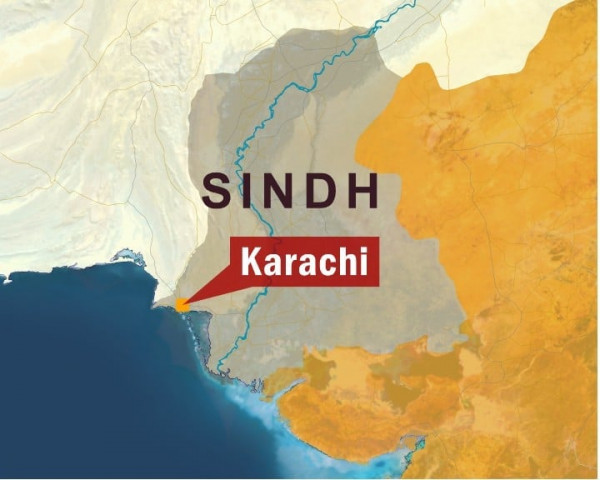Too many cases, not enough judges, says SHC judge
Good lawyers hesitate to join the judiciary and prefer their own legal practices, Justice Gulzar Ahmed.

Thousands of litigation cases are pending in lower courts because there are not enough judges because competent lawyers prefer to practice law than sit in the judiciary, according to Justice Gulzar Ahmed of the Sindh High Court (SHC).
The lawyers who apply for the posts fail to even clear the entry test, said Ahmed. He was talking at a seminar on judicial reforms organised by the Legal Rights Forum (LRF) on Saturday.
He said that it is difficult to fill vacant posts while the number of cases keeps rising. “More than 4,000 people applied for the post of civil judges and only 64 passed the test this year,” Ahmed told his audience. “Thirty-four cleared the written test and finally only 24 people made it through the interview. You can imagine how many of them were competent.”
Justice Ahmed was responding to criticism at the failure of higher judiciary to fill vacant seats. He said that there are 427 seats for judges in lower courts. Nearly 85 of them are still vacant while the number of pending cases was 100,000.
“Good lawyers who can become excellent judges do not come forward,” he said. “They probably feel it is better to stay away from politicisation of judiciary with the issue of PCO judges and non-PCO judges.”
He elaborated that the SHC also faces similar problem as 35 out of 40 seats are vacant. He said that recommendations for people for appointment have already been sent but the government is delaying appointments.
Senior advocate Anwar Mansoor Khan said that the judiciary has to be independent to get rid of corruption. “It should be financially independent and must have the power to make appointments and promotions.”
He said that lawyers themselves should criticise the colleagues who are involved in corruption. “There is no chance of any corrupt practice without the involvement of lawyers.” As the number of pending cases increases, people have become wary of the cumbersome judicial process, he added.
Cases get stuck in SHC longer as compared to Punjab, said Nadeem Qureshi, a member of the Sindh Bar Council. “What I don’t understand is how it is so easy to get a stay order in any case from the SHC.” According to him, cases on which a stay order was obtained must be decided in a matter of days. There should be proper system for presenting urgent cases before the judges.”
The CEO of LRF, Malik Tahir Iqbal, said that the promotion of judges should be based on the number of cases they decided. And more importantly, political interference must end in the judicial process, he added.
New NGO for guarding legal rights of citizens
Around 200,000 cases are pending in all the high courts of the country while around 300,000 cases pending in the district courts of Punjab, Sindh and Khyber Pakhtunkhwa, according to Ahmed Rafay Alam, a high court lawyer and a faculty member of Lahore University of Management Sciences (LUMS).
He said that around 7,380 cases are also pending in the district courts of Balochistan. He was giving a briefing to the media regarding “Public Interest Law Association of Pakistan (PILAP)” a nascent NGO which comprises senior lawyers, investors and businessmen to promote, support and pursue public interest litigation in Pakistan.
Alam, who is also the general secretary of PILAP, said that they filed their fist case in the Supreme Court on “Access to Justice”, which is the fundamental right of every citizen. According to him, only 0.1 per cent of the total budget is allocated for courts which is not sufficient. He said that the government should work on providing adequate capacity in our legal system and by providing financial and administrative independence to the judiciary.
The second case of the organisation will be about sewerage problems in Lahore and the students of LUMS will help them in the case.
Former IG Sindh and the president of PILAP, Aftab Nabi, said that the masses of Pakistan are poor, illiterate and are also deprived of basic fundamental rights such as education and healthcare. The people do not understand their constitutional rights and don’t have the ability to access a court of law to avail even their basic fundamental rights. Nabi said that PILAP is striving to become an instrument of social transformation and bringing justice to the disadvantaged and marginalised segments of society by rooting out exploitation and injustice. He said that PILAP is not politically motivated and will ensure that public interest is institutionalised and sustained. “We have started a membership drive and everyone can become a member,” he added.
with additional reporting from sohail khattak
Published in The Express Tribune, October 16th, 2011.



















COMMENTS
Comments are moderated and generally will be posted if they are on-topic and not abusive.
For more information, please see our Comments FAQ